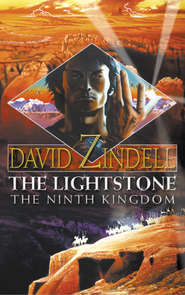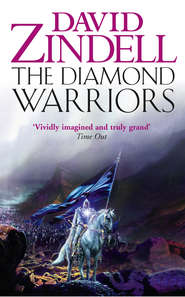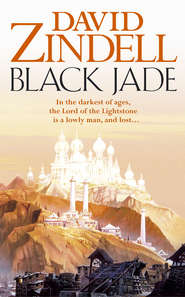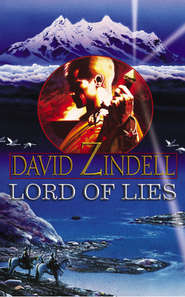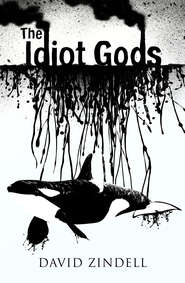По всем вопросам обращайтесь на: info@litportal.ru
(©) 2003-2024.
✖
War in Heaven
Автор
Год написания книги
2018
Настройки чтения
Размер шрифта
Высота строк
Поля
‘Don’t you think it’s a miracle, Pilot?’
‘A miracle – yes,’ Danlo said.
With that he pointed his ship down a steep angle of descent, following the Ark of the Angels into the thick air of the lower atmosphere. He fell down towards Neverness, the City of Light, where he sensed that the greatest of miracles still awaited him.
CHAPTER VI (#ulink_25035f35-9d63-5be5-a235-c89285df00e6)
The Lords of Neverness (#ulink_25035f35-9d63-5be5-a235-c89285df00e6)
Where are we really going? Always home.
— Novalis, Holocaust century poet
The poets say that there are only two ways to come to Neverness for the first time. A child might arrive through the bloody gate between his mother’s legs, gasping his first breath of air and crying at the dazzling light of the City of Pain. Or a man might fall down from space in a lightship or ferry and step out on to an icy run of the Hollow Fields where a friend might greet him with smiles, embraces and perhaps a mug of peppermint tea steaming in the cold air. Among the singularities of the life of Danlo wi Soli Ringess was the miracle that he had first come to the city otherwise. When only fourteen years old, he had left the island of his birth and crossed six hundred miles of the frozen ocean with his dogsled and skis. In the middle of a storm so fierce that he could hardly see his frozen feet through the wind-whipped snow, he had stumbled on to the sands of North Beach half-dead and alone. Alone and yet not alone: strangely, by chance or fate, a white-furred alien called Old Father had been waiting there to greet him and give him the bamboo flute that would become his most cherished possession. As Danlo now stepped from the pit of the Snowy Owl, he reflected on the irony of his homecoming. Although many must have heard the news of his arrival, neither Old Father nor any friend awaited him with musical instruments or mugs of tea. Almost the moment that his boots touched the hard surface of his world, twenty journeymen dressed in variously coloured robes – but each sporting an armband of gold – converged upon him. Unbelievably, Danlo thought, the journeymen wore lasers holstered in sheaths of black leather at their sides.
‘Danlo wi Soli Ringess, have you fallen well?’ One of the journeymen, a rather haughty young man in the green robe of a mechanic, greeted him formally. He stared at Danlo’s black robe and the diamond brooch pinned above his heart. And then he turned to Danlo’s fellow ambassador. ‘Lord Demothi Bede, have you fallen well?’
That was the only welcome they received. Quickly, with a cold manner that bordered on rudeness, the journeymen ushered Danlo and Lord Bede into a large sled waiting on one of the nearby glidderies. One of the journeymen sat at the front of this black-shelled sled to pilot it while two others sat beside Danlo and Lord Bede in the passenger seat. The remaining seventeen journeymen took their places in the seventeen other sleds lining the gliddery. Although they extended no friendship towards these two enemy ambassadors of their Order, they would escort them through the streets of Neverness in safety and great style.
Before they began their short journey through the city, however, five pilots dressed in light wool kamelaikas approached the open sled. They stepped carefully across the gliddery’s slick, red ice. Each of these five, too, wore a golden band around the upper arm – gold against midnight black, the very symbol of Ringism.
‘Hello, Pilot,’ the first of them said to Danlo. This was Nicabar Blackstone, a hard-faced man with hard grey eyes and a shock of precisely-cut grey hair. His lightship, the Ark of the Angels, lay ready on the run for a return to near-space. Lined up behind it like long silver beads on a strand of wire were the Infinite Dactyl, the Blue Lotus, the Diamond Arrow and the Bell of Time. Behind Nicabar stood Dario of Urradeth, Cham Estarei, Ciro Dalibar and the Visolela. Each of them greeted Danlo and Demothi Bede in turn. And then Nicabar said, ‘Word has arrived that the Vild Mission has been successful. It’s said that Tannahill has been found, and that Danlo wi Soli Ringess was the pilot who found it. That he crossed the entire Vild into the Perseus Arm. Thirty thousand light years through the Vild! Is that true, Danlo wi Soli Ringess?’
‘Yes,’ Danlo said, and then bowed his head slightly. ‘It is true.’
‘Then you are to be honoured.’
‘Thank you … for honouring me,’ Danlo said.
Nicabar Blackstone bowed deeply to Danlo, as did Cham Estarei, Dario of Urradeth and even the Visolela, with her thin, old body and stiff joints. Only Ciro Dalibar held back, snapping his little head at Danlo in a quick mockery of a bow as if he were a turtle. His little eyes regarded Danlo coolly and jealously, but when Danlo tried to look at him, he turned his face down towards the gliddery as if he were a newcomer to Neverness marvelling that the streets of the city were made of coloured ice.
‘But I won’t honour your embassy to our Order,’ Nicabar said. ‘It isn’t worthy of a pilot who has mastered the Vild – and the son of Mallory Ringess himself!’
‘We seek only to stop this war,’ Danlo said. ‘Is this so dishonourable?’
‘You bring war to our city – to all the Civilized Worlds. You who have betrayed our Order to join what you call a Fellowship of Free Worlds.’
‘No – we would bring peace. There must be a way towards peace.’
‘Peace on your terms,’ Nicabar said. ‘Such a peace can only inflame the desire for war.’
Until now Demothi Bede had remained silent, letting the two pilots argue between themselves as pilots are wont to do. But then he looked at Ciro Dalibar who was staring at Danlo openly with a silent, burning rage. ‘It would seem,’ Demothi said, ‘that there are those of your Order who desire war merely for the sake of war.’
Ciro scowled at this, looking back and forth between Demothi and Danlo. In his high, angry voice, he said, ‘It’s too bad that you ambassadors will be safe in the city while we pilots risk our lives in space to protect you from your own Fellowship when it attacks us.’
‘And as for that,’ Nicabar broke in, ‘you should be aware that things are very different in Neverness than when you deserted her five years ago. We’ll try to ensure your safety, but there are many who won’t welcome you, either as ambassadors or as wayless.’
‘I am sorry, but I am not familiar with that word,’ Danlo said.
Ciro Dalibar shot Danlo a quick, cruel look, and he was only too happy to explain this term in Nicabar’s place. ‘There are those who follow the way of Mallory Ringess into godhood. And there are those who refuse to realize the truths of Ringism and turn their faces from the way. These are the wayless.’
‘I see.’
‘Some, of course, have never heard the truth so it’s our glory to bring it to them.’
‘I see,’ Danlo said in a voice as deep and calm as a tropical sea.
But his equipoise seemed only to enrage Ciro further, for he stared at Danlo and half-shouted, ‘And you – you’re the worst of the wayless! You helped make Ringism into a force for truth, and then you just betrayed us! You betrayed your own father and everything he lived for.’
Danlo had no answer for this, in words. He only looked at Ciro, and suddenly his dark blue eyes deepened like liquid jewels alive with an intense inner light. Because Ciro couldn’t bear the sheer wildness and truth of this gaze, he muttered something about traitors and then stared down at the ice in silence.
‘We’ll say farewell, now,’ Nicabar Blackstone said. ‘The lords are waiting for you and we must return to the stars. I’m only sorry that in the coming battles, I won’t have the chance to test myself against the pilot who mastered the Vild.’
With that he bowed to Danlo with perfect punctilio and led the other pilots back across the gliddery’s ice to their ships. It took them only a moment to fire their rockets and a few moments more to shoot off into the deep blue sky.
The tall, serious journeyman who had his hand on the throttle of Danlo’s and Demothi’s sled, turned to look at his two passengers.
‘Are you ready, Pilot? Lord Ambassador?’
‘Yes,’ Danlo said. ‘Please.’
‘Very well. My name is Yemon Astoret, if you should need to address me.’
All at once the seventeen sleds fired their own rockets, and eight of these thundered down the gliddery ahead of Danlo’s sled. Then, with a jolt, he felt his sled begin to move, sliding across the red ice on its gleaming chromium runners. The remaining eight sleds followed them across the Hollow Fields northwards into the city that had once been his home.
‘So this is Neverness.’ The Ede hologram, projected out of the devotionary computer that Danlo carried on his lap, seemed to be drinking in the splendour of the city as if he were as alive as Demothi Bede or Danlo. ‘The City of Man.’
Many call Neverness by many names, but all call her beautiful. Once, Danlo had thought of this beauty as shonamanse, the beauty that men and woman make with their hands. But there is always beauty inside beauty, and Neverness had been built inside a half-ring of three of the most beautiful mountains in the world. Adjoining the Hollow Fields, almost so close that Danlo could have reached out his hand into the cold air and touched it, was Urkel, a great cone of basalt and granite and fir trees gleaming in the sun. And to the north, Attakel the Infinite, with its jagged, white-capped peak pointing the way towards the heavens for all to see. Just below Attakel, where the city rises up against the mountain, Danlo could make out the stunning rock formations of the Elf Garden where he had once gone to meditate as a journeyman. And far across the city to the northwest – across a narrow sound of the ocean which froze hard and fast in winter – he saw his favourite of the three mountains, Waaskel. It was Waaskel, this shining, white horn, that had guided him when he had first come to Neverness from a very different direction so many years before.
Losas shona, he thought. Shona eth halla.
Halla was the beauty of nature, and the glory of Neverness as a city was to mirror the natural beauty of Neverness Island itself. As Danlo rocketed slowly along the broad orange sliddery connecting the Hollow Fields to the academy, he marvelled at the great gleaming spires built of white granite or diamond or organic stone. There were the spires of the Old City, numerous, lovely and ancient, and the more recently-built spires such as those named for Tadeo Ashtoreth and Ada Zenimura. And the most recent of all, Soli’s Spire, named for Danlo’s grandfather. This needle of pink granite was the tallest in the city. At the end of the Pilots’ War, when a hydrogen bomb had destroyed much of the Hollow Fields and the surrounding neighbourhoods, Mallory Ringess had ordered it raised up as part of his rebuilding programme. This newly-made part of the city he called, simply, the New City, and it was these well-ordered blocks and graceful buildings through which the procession of sleds escorting Danlo now passed.
‘I was in the Timekeeper’s Tower when the bomb exploded,’ Demothi told Danlo above the wind whipping through the open sled. ‘I saw the mushroom cloud rise over this part of the city. And after, the utter ruin of streets that I had skated as a child. Every tower of the Fields broken, blown down. Almost every building. And look at it now! There’s no sign of the war, is there?’
Danlo looked out at the shopfronts and the many people coming and going from the various apartments giving out on to the street. Many of these buildings, with their pink granite and sweeping garlands of icevine flowers, reminded him of similar architecture he had seen throughout the Old City. All kinds of people thronged the sliddery itself, making travel slow. He saw wormrunners, courtesans, astriers, harijan, hibakusha and of course many Ordermen skating in the lanes to the side of them. The Academy Sliddery, as this street had been called for three thousand years, was one of the oldest in the city and usually one of the busiest. And now, on this 98th day of false winter in the year 2959 since the founding of Neverness, it seemed much as it always had at this time of day in this fairest of seasons. The air had fallen warm enough to melt the sliddery’s orange ice, and a sheen of water slickened its smooth surface. Songbirds warbled from their roosts in the elaborate stonework of the buildings while fritillaries swarmed the icevine flowers or the snow dahlia bursting from the planters in front of many restaurants. These were real fritillaries, insects with their lovely violet wings, not the organisms of the Golden Ring named for them. They added to the brightness and gaiety of the street; looking at them fluttering about in their thousands, it was almost impossible not to feel a certain peace.
And yet beneath the surface serenity of a typical false winter day, Danlo saw signs of war. Not the Pilots’ War that had befallen Neverness when he was still a child, but the coming war, the one he must stop even if it cost him his life. To begin with, too many people were wearing gold. Wormrunners and astriers and even harijan in their billowing pantaloons – many of them wore at least one garment that had been dyed a golden hue. All the courtesans, he saw, in their two- or three-piece silken pyjamas, were dressed wholly in gold, a clear sign that their Society had wholly converted to Ringism. And all the Ordermen wore bands of gold, often sewn into the very fabric of their robes. Five times he saw Ordermen actually wearing golden robes, and these were not grammarians as their colour once would have shown, but rather a horologe, a librarian, a cantor, a notationist and a holist. These five women and men wore armbands coloured red, brown, grey, maroon and cobalt to distinguish their respective professions. The most devoted of the Order’s Ringists, who called themselves godlings, prided themselves on beginning a trend which they hoped would spread throughout the halls of the academy; soon, it was said, even the Lord of the Order himself, Audric Pall, would take off his cetic’s orange robe and don one of purest gold.
Even the bustle of the street heralded the opposite of peace. Danlo saw too many sleds laden with furs or foodstuffs or other goods that people might hoard if the times grew violent. With the sliddery so crowded, it was the slowest journey he ever remembered making between the Fields and the academy. At the intersection of the great East–West Sliddery, the second longest street in the city, a sled had run out of hydrogen and stood blocking traffic. There was a snarl of stalled sleds and frustrated skaters backed up along both slidderies; many people were shouting and pushing their way through the manswarms as if they had forgotten every social grace. A fight broke out between two wormrunners. One of these, a large, black-bearded man bedecked in black sable furs and diamonds, whipped out a laser from a hidden holster and fairly shoved it in the other wormrunners’s face. He threatened to burn through his eyes and boil his brains. And then, realizing that the penalty for the crime of keeping a laser would be banishment from the city, he put away this vicious weapon and quickly skulked off into the crowd. That wormrunners might now carry lasers instead of their usual knives alarmed Danlo; that no one tried to chastise the wormrunner or seemed to regard his open display of outlawed technology as unusual alarmed him even more.
But they traversed the remaining seven long blocks to the academy without further incident. And then they came to the scorched steel doors of the Wounded Wall, which surrounded the academy to the south, west and north. The gates to this high granite barrier stood open awaiting their arrival. Danlo remembered that when he had been a journeyman, they always closed at night, making it necessary for him and Hanuman li Tosh and other friends to climb its rough stone blocks in then forbidden forays into the Farsider’s Quarter. Now, Yemon Astoret said, the gates were often closed during the day – for the first time since the Dark Year when the Order’s schools on eight hundred worlds had been burned in the Architect religious riots and the Great Plague had come to Neverness. Now, Yemon said, as if addressing two novices, the Lords of the Order feared that the astrier and harijan sects might riot under intense pressure to convert to Ringism. Or warrior-poets might try to storm through the gates on a mission of assassination. There were too many warrior-poets in the city; over the last year, these bringers of death in their rainbow robes had flocked to Neverness like goshawks gathering for a killing frenzy.
As the procession of sleds passed through the South Gate and threaded through the academy’s narrow red glidderies, Danlo filled with memories as if he were drinking an ocean. He gazed at the beloved Morning Towers of Resa, the Pilots’ College where he had spent his early manhood learning the mathematics of the manifold. Almost in the shadow of these twin pillars of the sun were the Rose Womb Cloisters, the buildings housing the salt water tanks where he had floated and practised his arts of hallning, adagio and zazen. He saw many journeyman pilots in their black kamelaikas skating the glidderies leading to the Cloisters or to Resa Commons. He couldn’t help but feel a camaraderie and compassion for them; many of them, he supposed, would be pressed into piloting lightships in the coming war before they had quite mastered their art. He wanted to stop his sled, to skate over to a group of these young pilots and tell them that he, too, had been elevated to a full pilotship at a very young age and had taken a lightship into the Vild before he was quite ready. But in their flashing eyes and anxious faces, he saw no welcome. They well knew who he was and why he had returned to Neverness. One of them, a burly man who was said to be the secret son of Lord Burgos Harsha, actually spat at the ice as Danlo’s sled moved past, and in a rather loud, braying voice called out, ‘The wayless return.’ Several of his friends, who all wore golden armbands, picked up the cue and cried out the newly popular saying, ‘Wayless, godless, hopeless.’
As they passed beneath the great old yu trees lining the streets and gracing the academy’s lawns, other Ordermen – akashics, tinkers, mechanics and imprimaturs – greeted them in a similar manner. Danlo could only imagine what insults might await him in the College of the Lords. He didn’t have to wait long. Soon the sleds rounded the gliddery that runs past the Timekeeper’s Tower, and in a few more moments glided to a rest outside a square building faced with huge slabs of white granite. The College of the Lords was nestled between the academy’s cemetery to the south and the lovely Shih Grove just to the north; to the east, the grounds gave way to the rising slopes of the Hill of Sorrows, still covered with purple and white wildflowers, late in the season though it was. Danlo and Demothi thanked Yemon Astoret and the other journeymen for their accompaniment, but, of course, their little mission was not finished. They insisted on escorting them up the steps and into an anteroom off the College’s main council chamber. There, a red-robed horologe named Ivar Luan bowed to them and immediately led them through a pair of sliding wooden doors into a circular chamber where the Lords of the Order had gathered.
Once before Danlo had been invited into this place of history and great moment. With its circular walls of polished white granite and the great clary dome high above, it was a dazzlingly bright room but also draughty and always cold. He remembered how he had once knelt on the cold black floor stones before some of these very men and women. (One of whom had been Demothi Bede.) But now, since he and Demothi were no longer of the Old Order, they were not bidden to kneel on a Fravashi carpet according to tradition, but rather provided chairs on which to sit before the watchful eyes of a hundred and twenty lords. These tense men and women waited at their little crescent tables arrayed in a half-circle around four chairs in the centre of the room. Danlo, who had always hated sitting in chairs, took his seat with great disquiet, and he wondered at the two empty chairs next to him. As before, he smelled jewood polished with lemon oil and the reek of many old people’s fear. The greatest lords sat directly across from him at the two centre tables. Danlo knew many of them quite well, especially Kolenya Mor, the Lord Eschatologist, who played with the silken folds of her new golden robe. Kolenya was plump, moon-faced, intelligent and kind – and utterly beguiled by this new religion called Ringism. She was a bold women and also the first lord to trade in her traditional robe for a new one of gold. Also at her table were Jonath Parsons, Rodrigo Diaz, Mahavira Netis and Burgos Harsha with his plain brown robe and glass-pocked face. At the other centre table sat lan Kutikoff, the Lord Semanticist, and Eva Zarifa in a purple robe displaying not one but two golden armbands. Next to her, old Vishnu Suso shifted about in his chair, all the while staring at Danlo and fingering his armband as if he suddenly found it too tight. He seemed uncomfortable sharing so close a physical space with the other lord at the end of the table, Audric Pall, the Lord of the Order himself. And no wonder, for Danlo had never seen a more horrible human being in all his life. It almost hurt him even to look at Lord Pall, with his pink, albino’s eyes and skin as white as bleached bone. This rare genetic deformity was accentuated by his black teeth, revealed whenever he spoke or smiled, which was not often. Lord Pall liked to communicate only by using his hands and fingers, making the little cetic signs which the journeyman cetic sitting by his side like a parratock bird translated into spoken language. He was as silent as a cetic, as the saying goes, and also cynical, subtle and wholly corrupt in his spirit.







